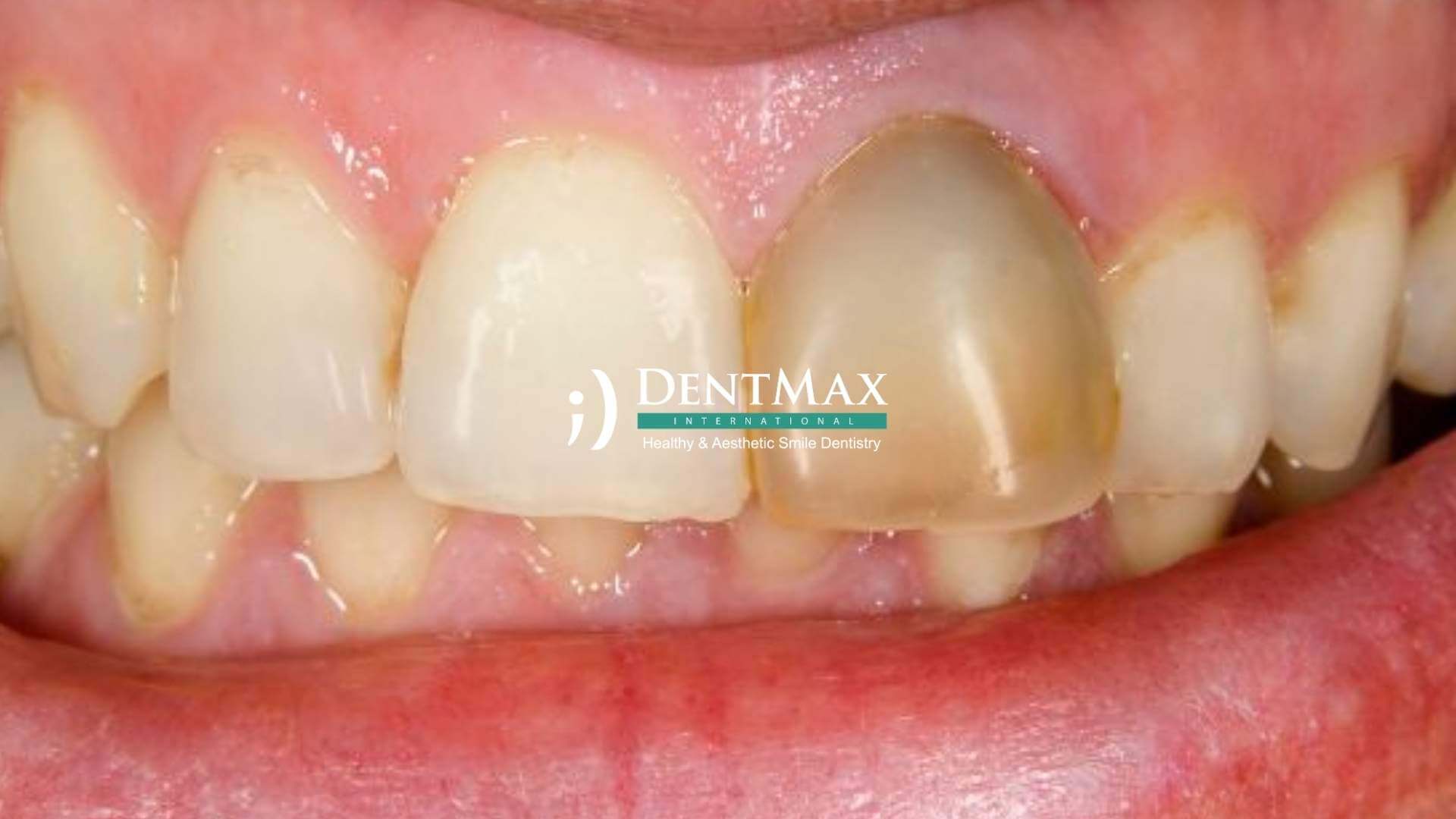Dead Tooth 101: Symptoms, Treatments, and Pain Management
Is Your Tooth Dead? Spot the Symptoms Now!




Eş, Baba, Ortodontist...
Yüzücü ve Doğa Tutkunu!

Eş, Baba, Ortodontist...
Yüzücü ve Doğa Tutkunu!
Is Your Tooth Dead? Spot the Symptoms Now!
According to a recent study, approximately 15 million root canal treatments are performed each year in USA. This statistic highlights the severity of common dental issues like pulp necrosis or dead tooth. It is crucial not to neglect the health of your dental nerves.
Pulp necrosis occurs when the nerve and blood vessels inside the tooth, known as the pulp, lose their vitality. This condition is often caused by untreated cavities or dental trauma. If left untreated, the infection can spread beyond the pulp into your jaw, neck, and chest, leading to severe health issues.
Reversible Pulpitis: When you have a cavity or a crack in your tooth, bacteria can get into the pulp and cause inflammation. At this stage, the tooth can heal on its own if properly treated.
Irreversible Pulpitis: The inflammation progresses, and the tooth can no longer heal itself. Pain and sensitivity increase.
Pulp Necrosis: The pulp tissue dies, and while the pain may decrease, the risk of infection increases.
Pulp necrosis is a common condition, but its exact prevalence is not well-known. However, the frequency of root canal procedures provides a rough estimate, as these are often performed to treat pulp necrosis. The American Association of Endodontists estimates that there are 15 million root canal procedures done each year.
The symptoms of pulp necrosis can vary depending on the stage:
Reversible Pulpitis: You may experience a short, sharp pain with cold or sweets, but it dissipates quickly. Usually, there is no sensitivity to heat.
Irreversible Pulpitis: This stage can cause a low-grade ache, throbbing, or sharp pain that lasts 30 seconds or more after exposure to heat, cold, or sweets.
Pulp Necrosis: Once the nerve dies, you may not feel any sensitivity to heat, cold, or sweets. However, pain may occur when your dentist taps on your tooth.
Cavities: If not detected and repaired, cavities can allow bacteria to enter the pulp and eventually lead to nerve death.
Cracked Tooth: A crack can provide a pathway for bacteria to reach the pulp.
Dental Procedures: Multiple or unsuccessful dental procedures can make a tooth more susceptible to pulp necrosis.
Trauma: An injury can expose the pulp or affect its blood supply, leading to tissue death.
Worn Tooth Enamel: Aggressive brushing or teeth grinding can wear down enamel, allowing bacteria to enter.
Dentists typically diagnose pulp necrosis through the following methods:
Root Canal Therapy: The dead pulp tissue is removed, and the tooth is cleaned and sealed.
Tooth Extraction and Implant: If the tooth cannot be saved, it can be extracted and replaced with an implant. This restores the natural appearance and function of the tooth.
Restorative Treatments: Following a root canal, the tooth can be restored with a crown or filling.
Complications occur when the infection in the pulp spreads. If it reaches the tip of the root, it can cause a pocket of pus (abscess) that can be very painful. Other complications include:
You can prevent cavities and keep your teeth healthy by:
With prompt diagnosis and treatment, the outlook for pulp necrosis is positive. If the infection spreads to the jaw, neck, or chest, it can be serious. In the past, such conditions were life-threatening, but modern antibiotics, imaging, and surgical techniques have significantly improved the prognosis.
In pulp necrosis, the pulp tissue inside your tooth dies. Treatment options include a root canal or removal of your tooth. Prompt treatment is essential to prevent the infection from spreading. Maintaining oral hygiene is crucial to prevent this condition. Brush and floss regularly, schedule routine dental appointments, and report new symptoms to your dentist promptly.
DentMax, with locations in Istanbul and Balıkesir, offers expert dental services with a focus on healthy and modern aesthetic dentistry. Since 2010, DentMax has been committed to providing the best services, adhering to ethical standards. We hold ISO 9001 and 10002 quality certifications and are a proud award-winning clinic. As a Turkish Ministry of Health approved and internationally certified health tourism authority, we ensure a world-class treatment experience.
Benefits of Choosing DentMax Dental Clinic İstanbul Turkey
Contact Us for Information and Appointments:
Phone: +902125700033
WhatsApp: +905443754766
Email: info@dentmax.com.tr

Crea tu cita rápidamente en 5 pasos
Su solicitud ha sido recibida. Nos pondremos en contacto con usted lo antes posible.